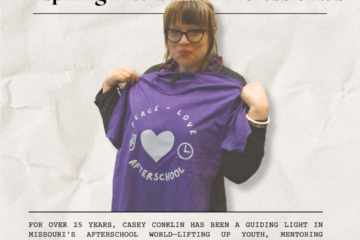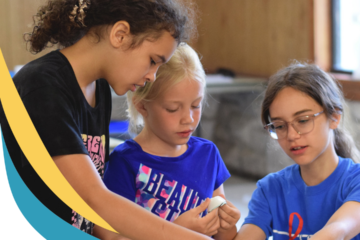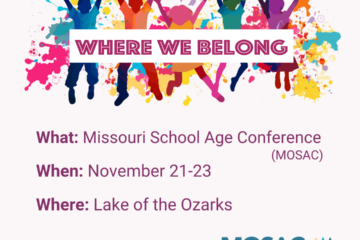Last week we celebrated Mental Wellness in Afterschool Week at the capitol. Thanks to the support of our afterschool staff and legislators, some Missouri youth have a safe space that is crucial to their advancement. A wide body of research identifies afterschool programs as a protective factor for youth mental health.
According to data from the 2021 Missouri Youth Risk Behavioral Study one in three Missouri high school youth experienced depression, but few felt they were getting the help they needed. Afterschool program directors like Colleen Abbott, Eldon LEAP program director recognize the need to address prevention of these mental health issues.
“Mental health is negatively impacted when there’s not a community. And our afterschool program provides a connected community for our students, and that positive adult interaction is critical,” says Abbott.
Afterschool is all about fulfilling a gap in our youth, as Abbott notes. In addition to fostering community, Missouri afterschool programs take that additional step during out-of-school time to make sure the well-being of youth is a key factor to help students reach their full potential.
The Warrensburg Adventure Club demonstrates the successful incorporation of mental health education in afterschool programs. Casey Conklin, Warrensburg Adventure Club program director, launched a partnership with the University of Central Missouri Marriage and Family Therapy Department to introduce therapy interns offering free wellness checks, peer groups, and even family therapy for our youth. Conklin knows the power of afterschool.
“A person’s emotional education and wellbeing starts in childhood,” said Conklin. “Having a safe place to go after school that focuses on academic, physical and emotional wellness will shape future citizens into healthy and adjusted adults.”
Afterschool programs operate during the “prime time for juvenile crime” when youth are more likely to get into trouble. Missouri afterschool programs provide critical support to help youth stay on track, including;
- additional mentorship
- the ability to explore new interests
- skills to gain self-control and confidence
- and the intervention to help youth avoid tobacco, marijuana, and vaping.
Representative Lane Roberts speaks on his role as a previous police officer and the connection between unsupervised youth and crime.
“It’s heartbreaking when youth form bad habits,” said Roberts, who chairs the Missouri House Committee on Crime Prevention and Public Safety. “Young people need guidance, and I think afterschool programs give them not just a healthy environment but also good guidance to keep them away from crime.”
Additionally, Representative David Evans, who served as a judge for nearly 20 years, says afterschool is an opportunity to fill a gap in our community for children “who otherwise would not be able to obtain guidance or support as they grow older in a safe environment.”
As our afterschool network continues to grow so does our commitment to our youth, and mental health is one of our priorities in fostering growth for all Missouri children.



